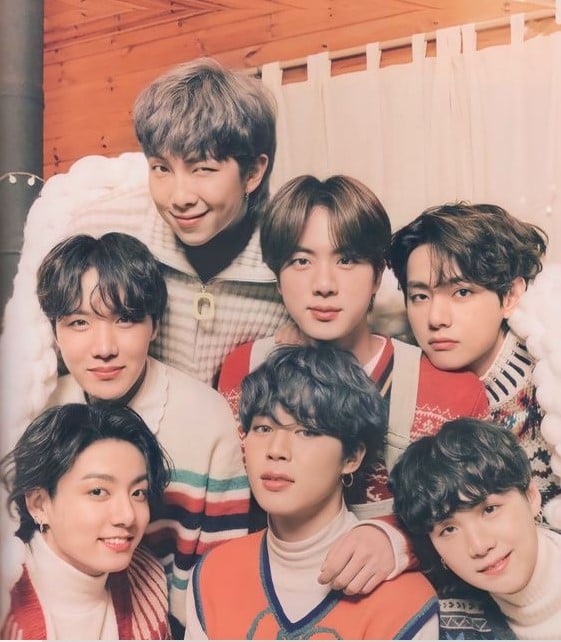In the “post-BTS era” due to the group’s military service, there are co-existing crisis and opportunity, said industry insiders.
K-pop, which expanded its influence in Asia in the 2000s, saw significant global influence in the late 2010s, led by BTS and followed by many other artists. achieving remarkable success.
Commercial successes such as occupying Billboard charts, stadium tours, and entry into foreign awards ceremonies continuted, setting numerous firsts, bests, and most records. With impressive growth and cultural influence, K-pop, based on its elevated global status, has been recognized as a genre in the world’s largest market, the United States.
However, there has been talk of a “K-pop crisis”. The main concern stems from a “post-BTS era”, where BTS’s hiatus caused by the group’s military service has led to a downturn in the K-pop market.

Furthermore, some markets, including China and parts of Southeast Asia, are showing signs of stagnation. Due to the core fandom-centric structure of K-pop fandoms, there is a view that the industry is facing a crisis due to the lack of expandability in fanbases.
While there is room for debate, it is clear that both crisis and opportunity coexist in the current K-pop industry.
Faced with the “K-pop crisis” various music association officials were asked about the current status and future of the K-pop industry.
The music associations emphasized the potential for ‘growth’ in the K-pop industry. Many officials mentioned the challenges embraced by the industry alongside its development.
Yoon Dong-hwan, the president of the Korea Music Label Industry Association, stated, “In 2023, the investments made by producers and artists over a long period finally bore fruit. The growth of K-pop, which had been focused only on online and streaming markets due to the pandemic, was proven with rapid growth in offline and concert markets, receiving positive responses even on dream stages like Billboard and the Grammys, which were thought to be impossible. We can anticipate infinite growth in the future.”
He continued, “This year, everyone needs to think about how to sustain those achievements with various artists and contents. As it has been concentrated only on major planning agencies and artists so far, the key is how many small and medium-sized planning agencies and new artists can follow up on the current foundation. It is also a time to check whether laws and regulations can keep up with changes in the industry, such as FIFTY FIFTY creating good results but being hindered by malicious acts or structural changes.”
Go Gi-ho, vice chairman of the Popular Music Performance Industry Association, said, “Currently, K-pop is playing a significant role in raising the status of Korean culture and content to the world. K-pop has boldly moved from the periphery of music to mainstream music over the past decade. From an industrial perspective, large-scale planning agencies like HYBE and SM have emerged, worth tens of trillions of won.”
He added, “Industrialization and globalization are ultimately a battle between experience and capital. In the future, the K-pop market is expected to be more concentrated around these large planning agencies. It is necessary to expand diversity and appearance by naturally promoting various genres of K-pop, including ballads, bands, and even trot, rather than confining K-pop music, represented by idols, to a single framework.”
Choo Kyung-yeol, Chairman of the Korean Music Content Association, commented, “The global influence of K-pop contributes not only to the music culture industry, but also to various fields such as the tourism industry and national image enhancement. To maintain the current legacy of K-pop, we need to continue to produce various music that can show Korea’s unique culture beyond K-pop, which is represented by idol dance genres.”
Choi Kwang-ho, general secretary of the Korea Music Content Association, expressed that idol culture is the foundation of the expansion of the K-pop industry. However, while the idol culture is powerful, Choi Kwang-ho believes that K-pop should expand a certain genre or music not just to the frame of an idol.
“Of course, it remains to be seen whether such an attempt will succeed or not, but I think the industry is likely to develop and expand further because we feel the limitations of K-pop development and strategic attempts to expand beyond that continue,” he also added.

Finally, Yoo Jae-jin, Director of Management Support at the Korea Music Industry Association, mentioned the emergence of Seo Taiji and BTS as the major “eras” of K-pop.
“With the advent of Hallyu 3.0, there are concerns that the current wave of K-pop may decline. Therefore, there is much discussion about preparing sustainable strategies for the future”, he said, adding, “In fact, entertainment success is inherently uncertain. Despite thorough preparation, influential content or artists may or may not succeed.
The director also expressed confidence about the K-pop system and predicted the industry’s future growth, saying, “What is frightening about K-pop is that it has already established the best system, thus turning uncertainty into certainty. The system created by K-pop currently holds a significant advantage over other countries and various factors globally. While in the past, we were in a position to learn from other countries’ systems, now we are leading the world, and other countries are benchmarking South Korea. As the growth momentum of K-pop continues and the added value it brings keeps rising, it seems premature to talk about a crisis. I believe K-pop has not yet reached its peak and still has room for further ascent, expansion, and reinforcement.”
Source: Sports Today via Daum

Leave a Reply